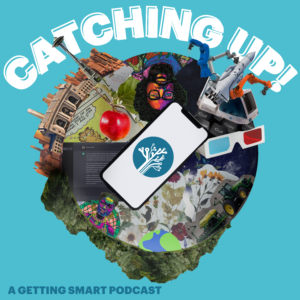We’ve been talking about microschools through the blog and in our town halls over the past few years and recently announced A Big Push for Small Schools, the first grant opportunity from our Learning Innovation Fund. This cohort of grantees is dedicated to driving real change in their community and in the lives of learners through small school models.
As part of our initiative, we convened a group of dynamic microschool leaders and learning providers as a Community of Practice (CoP). The diverse backgrounds and experiences of the participants fostered a solid foundation for collective learning. Through the exchange of ideas, perspectives, and innovative approaches, this dynamic group has contributed to further defining the microschool landscape. Our first CoP focused on the emerging category of microschool incubators.
Latest Blogs
Podcasts
Resources
Microschools Sustainable Growth Strategies
This resource from Getting smart spotlights multiple microschool models and unpacks how they think about sustaining, growing and providing powerful learning experiences for their learners.
Designing Microschools: Why Launching Small Learning Environments Is a Big Idea
This resource from Getting Smart provides examples of microschools and addresses why you’d want to start a microschool, how to start a microschool and how to know if it is working.
American Microschool Analysis
America’s fast-growing microschooling movement has been described as one of the most exciting education narratives of this generation. This sector analysis from the our partners the National Microschooling Center illuminates important aspects of this dynamic community, including who is leading microschools, their backgrounds, and just how diverse the sector has become in many different important aspects of their work, including main motivating goals, educational approaches, intended outcomes, weekly schedules and funding sources.
Open for Business: The Economics of Everyday Entrepreneurs in Unconventional Education
VELA provides unique insights into the rapidly growing market of unconventional education. To gain a better understanding of the business practices and models used in this nascent landscape, VELA conducted a survey of its community in the fall of 2022. The findings are valuable for entrepreneurs, learners, families, funders, policymakers, and anyone interested in the future of education.


